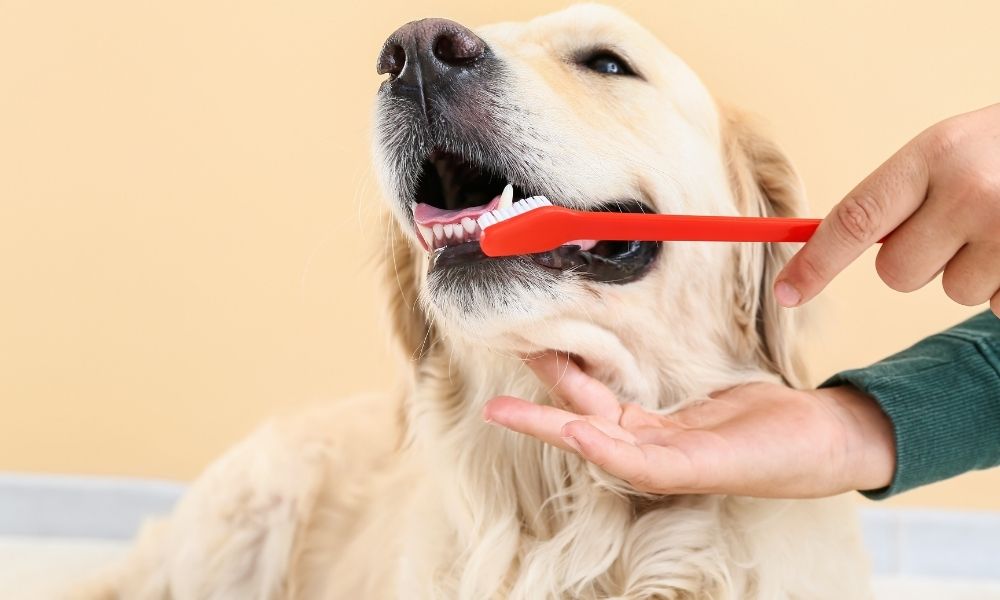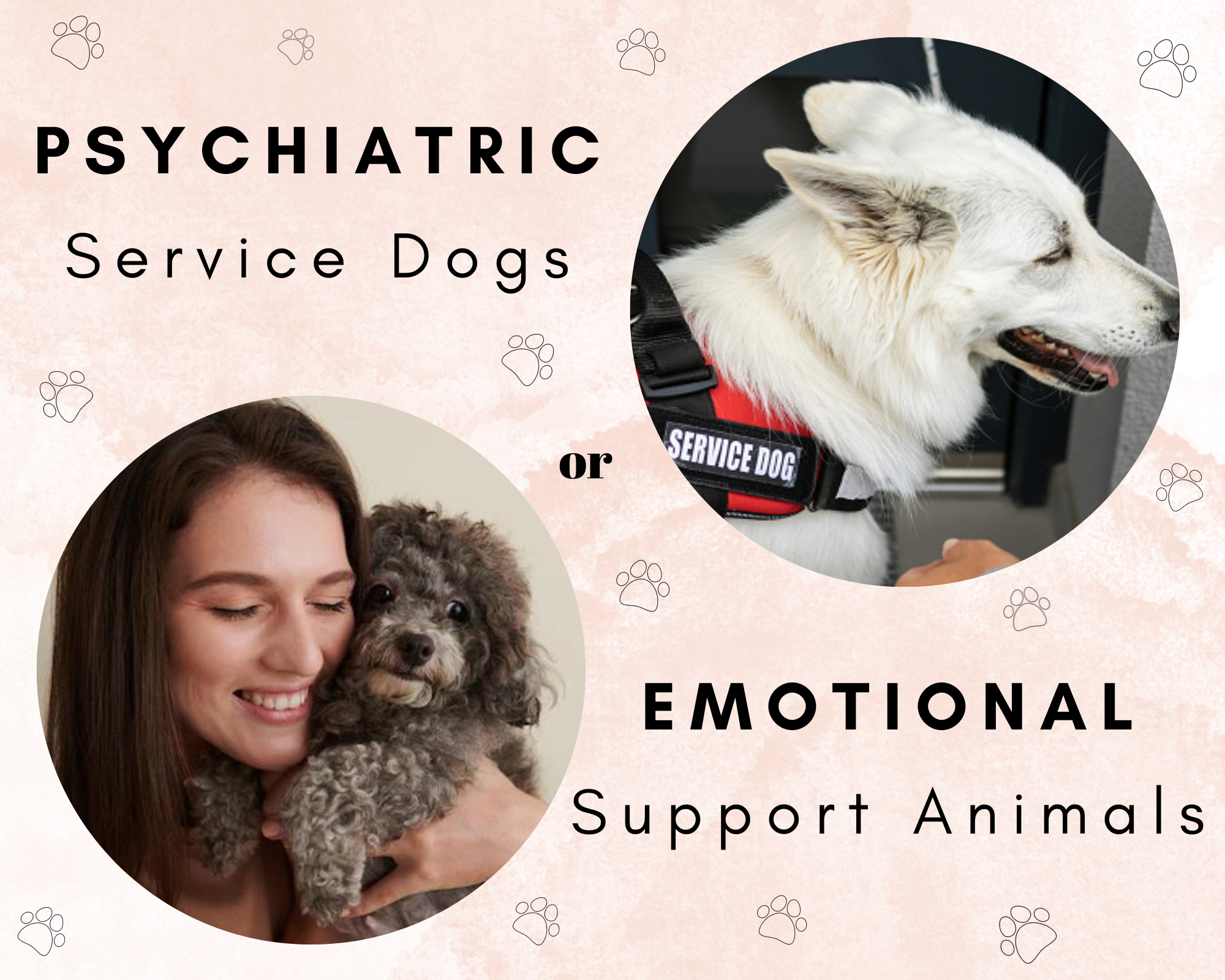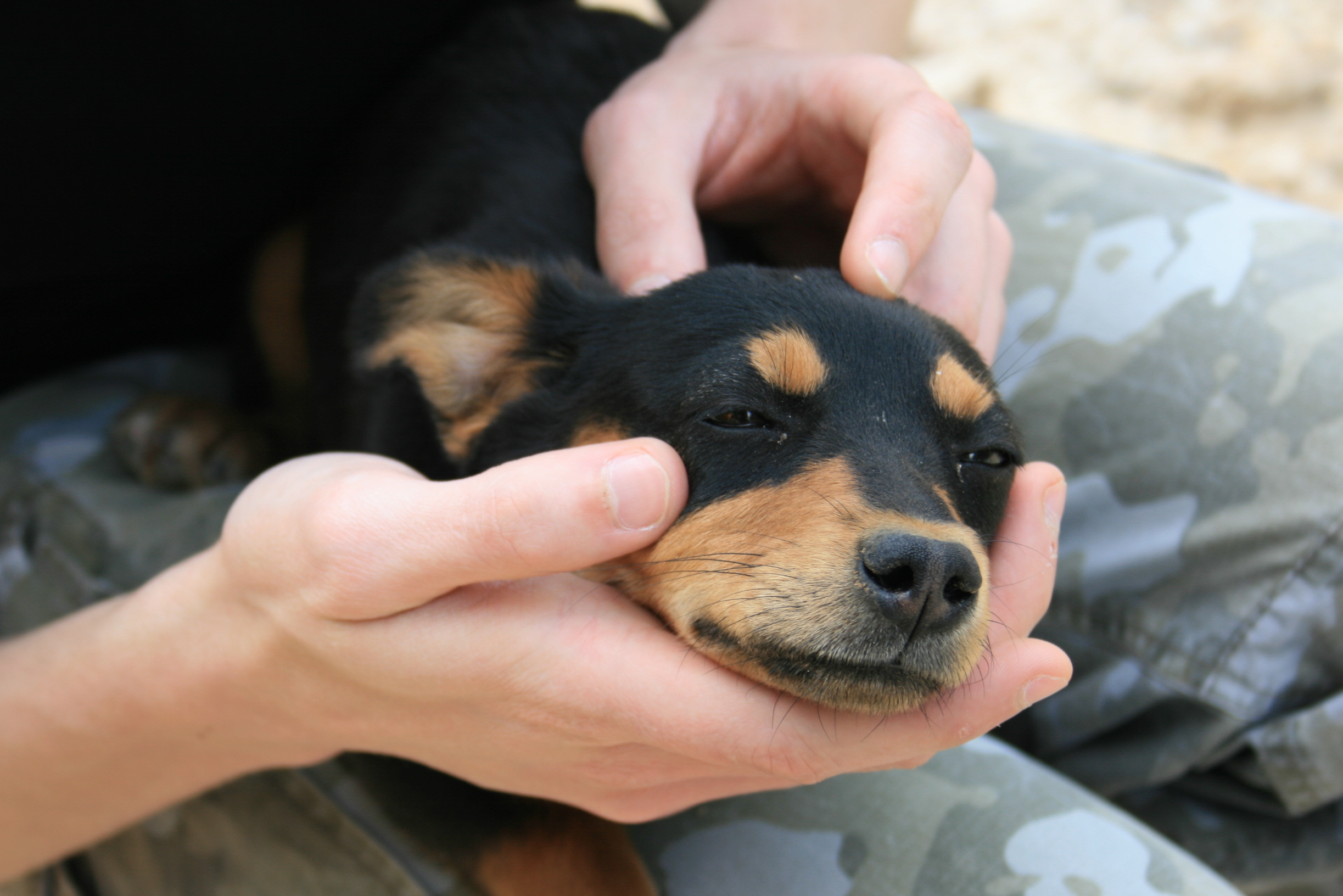
Pawing, hugging, nudging, kissing...dogs express their feelings and attachment to their owners in different ways, using body language and vocalization. Receiving a kiss from their lovely furry friend may be one of the most favorite things in the world for many owners. However, many of you may not be enthused about this sign of affection full of excitement, as our paw friends can have sometimes a rotten-smelling breath. Dogs, just like humans, tend to have bad breath occasionally, due to different substances they have eaten. Sometimes, bad breath can be a sign of poor oral hygiene, periodontal disease, or more serious health issues.
Beside the regular veterinarian visits, every owner needs to supervise their dog’s general health condition and take action as needed. Breath is one of the health’s components that should be monitored. We would like to inform you about the possible causes for bad dog breath and give you some pieces of advice about what home remedies you can use to deal with it.
Causes of Bad Breath in Dogs
Bad Oral Hygiene
Every time our furry friends eat, small food particles are likely to be stuck in their mouths. Once these particles mix with the bacteria in their mouth, plague builds up. If you do not brush your dog’s teeth on a regular basis, the plague can turn into tartar. Tartar itself may cause bad breath in your dog. If you do not brush your canine’s teeth regularly, and do not take care of his/her oral hygiene, periodontal disease may be caused as well. This disease can lead to cavities, infections and even tooth loss.
Developing Unhealthy Nutritional Habits
Dogs tend to sniff and eat their own feces, the feces of other dogs or cats. If your dog regularly eats their own excrement or the excrement of other animals, bad breath may occur as result. You need to always supervise your canine and keep track of their dietary habits not only during walks but at home as well. If you raise more than one animal, your doggy is very likely to be curious towards them and their habits and try to “investigate” their feces. This behavior may lead to coprophagia (the practice of eating stool (feces))- a condition that may be one of the causes for bad breath.
Kidney Disease
If you can smell urine in your canine’s breath, this may be a sign for a kidney disease. This is a serious condition, that requires immediate veterinarian check.
Liver Disease
Breath that smells repulsive, decreased appetite, and vomiting may be signs of liver disease. If you are wondering if exactly this condition causes the bad breath of your canine, you can check their gums. If they are covered with a yellow tint or film, your dog is likely to deal with liver disease. Kidney and liver disease are conditions that require veterinarian visits as soon as possible.
Diabetes
An easy way to recognize diabetes is to smell your dog’s breath- if it is sweet and kind of fruity, you will need to take immediate actions and take your paw friend for a checkup.
Regular examination in a veterinarian clinic is a necessity if you want to ensure that your canine is healthy. If he/she deals with an underlying health issue, this is the best way for it to be recognized and treated properly.
How to Treat Your Dog’s Bad Breath?
Veterinarian Check
If you think that your dog may coop with a health condition, and his/her bad breath is only a symptom, the best thing you can do is to arrange an appointment with a veterinarian. If the bad breath is caused by plague and tartar, the veterinarian is likely to clean your dog’s teeth or eventually take away an impacted teeth. If the veterinarian confirms that the cause is a health issue, blood tests will be run and examination will be conducted.
Supervise Your Dog
If the cause for the smelly breath of your dog is his/her unsupervised behavior and his/her bad habits to eat non-edible objects like feces or carcass, you need to monitor them, limit their access to all potentially dangerous food and conduct training to correct this behavior. Moreover, you can move the litter box of your dog or the other pet. Put it outside or in a room, that your dog can not have access to. You can also start cleaning up right away, in order to impede the development of coprophagia.
How to Prevent Bad Breath?
We would like to divide the prevention “tools” into three groups:
1. Products on the market for oral hygiene;
2. Natural Ingredients & Home Remedies;
3. Healthy habits- Hygiene, Diet and Exercises.
1. Products on the Market for Oral Hygiene
The first group includes products like toothpaste, dental treats and chew toys.
What is important to know about this group?
Toothpaste
Regular teeth brushing is important to maintain the oral hygiene of your dog. However, you should remember to not use a human toothpaste, as it may be toxic for your dog due to the xylitol content. For more information about healthy human food that can be dangerous for your dog, you can read our article “11 Healthy Human Food Can Harm or Kill Your Dog”. Always use products specially designed for dogs. Your canine may not like having their teeth brushed, but proper training will solve this potential issue.
Chew toys
When you chose a chew toy for your canine, you need to consider their size and their mouth’s width. The toy should be longer than the mouth’s width of your dog. You also may need to think about the variety of materials that chew toys are made of. If your dog is of a larger breed, he/she is likely to enjoy chewing a more challenging toy. There are of course many flavors and styles, so you can find the best one for your doggy.
Dental Treats
There are many dental treats on the market that are designed for daily use. These will help your canine get rid off or at least lessen the plaque and tartar in their mouth.
2. Natural Ingredients & Home Remedies;
The second group of tools includes natural ways and ingredients that will help your dog get rid off the bad breath.
Vegetables and Fruits
Chewing on hard vegetables and fruits is likely to increase the salivation which removes some of the bacteria developed in the mouth. Apple and carrot slices interfere with accumulation of plague and keep the breath of your doggy fresh. However, you need to be careful to not overfeed your canine with fruits and vegetables, as they are high in fructose and starch. The high content of these ingredients may worsen a health condition like yeast. We would recommend that you give your dog carrots and apples in reasonable amounts like treats.
Another good natural way to keep your dog’s breath fresh is feeding them with
Celery
Celery stimulates the production of saliva and is low in starch. Furthermore, it is high in water and enables the reduction of plague and tartar.
Peppermint
Peppermint has a good refreshing effect not only on humans’ breath but also on dogs’ breath due to the high content of antioxidants. It is also beneficial for the digestive system. You can apply peppermint drops to your canine’s water, treats, or give them to your dog directly.
Parsley
Parsley is a great remedy for bad breath. Also, it is rich in minerals and vitamins and has many benefits for the general health condition- it aids the immune system, relieves the pain caused by inflammations and digestive issues, improves the vision and protect from kidney disease. We would recommend that you feed your canine with reasonable amounts of parsley and add it to their water (if you blend it) or to their food.
It is important to remember that you need to feed your canine only with curly leaf parsley, as spring parsley is toxic for dogs.
Spirulina
“Spirulina is a biomass of cyanobacteria that can be consumed by humans and animals”. This bluish algae is rich in antioxidants, vitamin A, B1, B2, B3, E, copper, iron, chlorophyll and it contains important amino and fatty acids. It can be considered a nutritional booster with many benefits for the immune system, as well as an effective tool against bad breath. Like every other supplement, you need to add it gradually to your canine’s food or water and increase the amounts step by step.
Apple Cider Vinegar
Refreshen their breath is only one of the many benefits that apple cider vinegar has for dogs. It also detoxes the kidney, prevents infections of the urinary tract to recur, cleans itchy ears, and relieves itchy skin.
Aloe Vera
Due to the high content of enzymes and its antiseptic effect, aloe vera has benefits for the digestive system and oral hygiene. The plant will help your furry friend when they are dealing with bacterial, fungal infections, or inflammation. Insect bites, eczema, or burns can also be treated with aloe vera.
What do you need to consider when feeding your dog with aloe vera?
Remember to not give a whole leaf to your furry friend, as some segments of the leaves may have a toxic effect on your dog. Large amounts of aloe vera may cause diarrhea, vomiting, urinary tract issues and even depression. We would recommend that you cut the leaf and remove the yellowish-tinted part that surrounds the clear gel. In order to reduce your dog’s bad breath, you can mix one part of aloe vera juice and one part of part of hydrogen peroxide (very dilute) and apply it to a cotton ball. You can gently rub it on your dog’s teeth. However, if you are not sure how to safely use these substances, please consult a veterinarian to avoid upsetting your doggy’s stomach.
Coconut Oil
Coconut oil is rich in healthy saturated fats and fatty acids. It can be very beneficial for your beloved furry friend, as it can improve the digestive system, the cognitive functions, and the immune system in general. Furthermore, it helps against ticks and fleas and makes the coat of your furry friend soft and shiny. If you would like to use coconut oil for reducing bad breath, we would advise to not feed your dog with more than ¼ tablespoon, if he/she is a representative of a smaller breed, and 1 tablespoon if he/she is of a larger breed. You can provide your dog with coconut oil once or twice a day and apply it as a part of their treats as well. Also, you may want to feed your dog with organic, virgin and cold-pressed coconut oil of high quality for best effect. Remember, that too much coconut oil may lead to vomiting and diarrhea, so you need to be very careful when implement this derived of coconut palm fruit to your canine’s food and consult a veterinarian as needed.
Probiotics
Keeping the amount of good and bad bacteria balanced is really important for both humans and dogs. Probiotics have many benefits not only for us, but for our paw friends as well, as they support their immune system, digestive system, absorb vitamins and keep a healthy bacteria balance. Probiotics can be applied in different forms, i.e. pills, treats/dog food, yogurt and kefir. Along with all health benefits that probitics have, they can also be used as a remedy for bad breath.
3. Healthy habits- Hygiene, Diet and Exercises
Keep the water bowl clean
If you want to interrupt the process of bacteria build-up, you should clean your dog’s water bowl on a daily basis. It is recommended that you provide your dog with fresh and filtered water every day if possible. Washing and drying the water bowl every day will support the general health condition of your paw friend, including their fresh breath.
Healthy diet
Feed your dog with balanced food of high quality and avoid food or treats with many additives. We would recommend that you avoid feeding your dog with food, containing the following substances:
-Xylitol (it can be extremely dangerous for your dog, as it can cause hypoglycemia, liver disease, or even death);
-Artificial ingredients;
-Too much salt;
-Brewer's rice;
-Propylene glycol;
-Corn syrup;
-Nitrates or nitrites (nitrate is less toxic than nitrite and it becomes toxic when converted to nitrite)
Regular exercises
Never forget to exercise your dog and provide them with mental stimulation as well. High hygiene, a balanced diet and exercises are crucial for health maintenance of humans and dogs.












